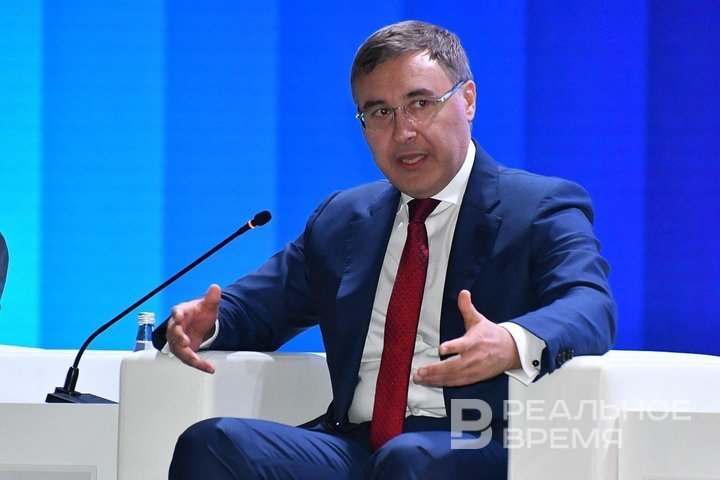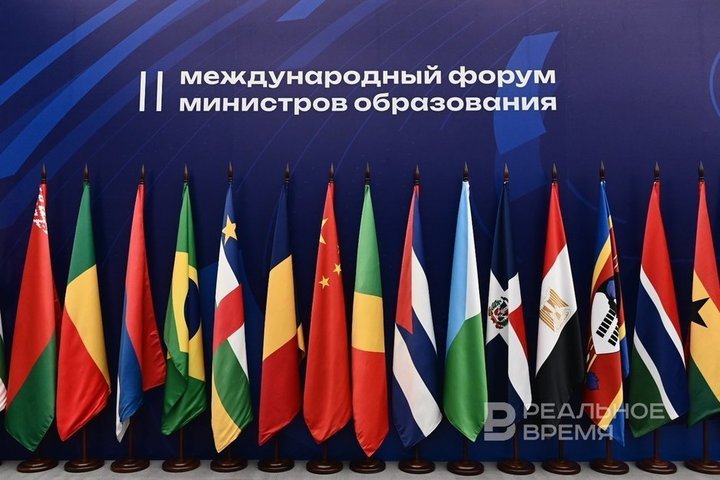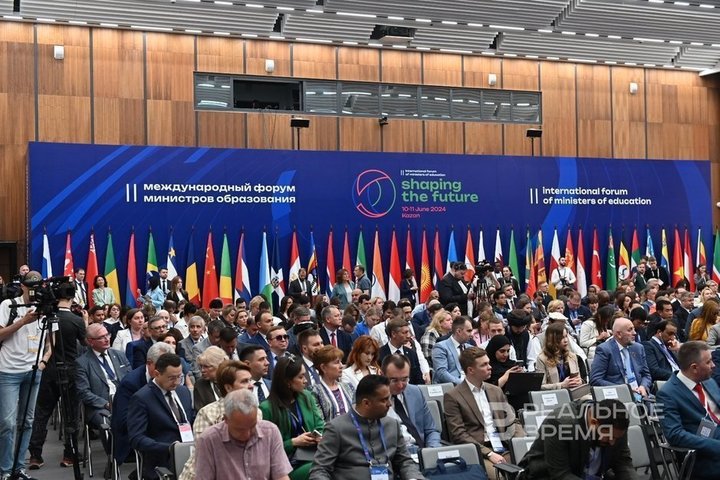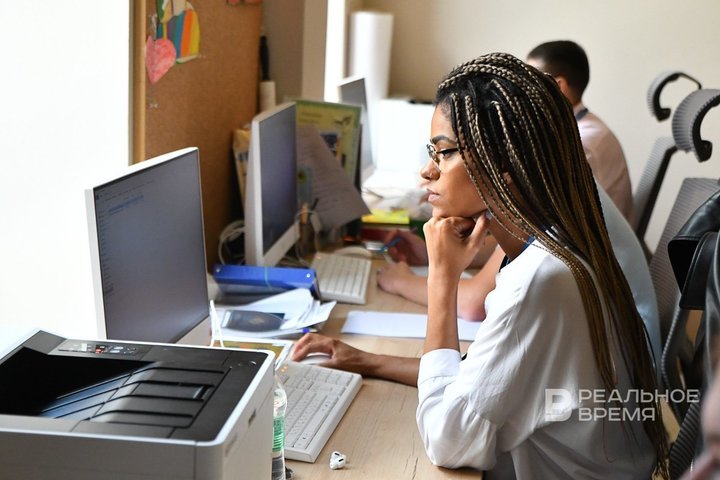Valery Falkov: ‘Young people go to study in the country whose diplomas are recognised in their homeland’
Minister of Science and Higher Education of Russia negotiated in Kazan on the nostrification of Russian diplomas in the BRICS countries

“The main task is to enable students from the BRICS countries to receive higher education in Russia. But young people go to study in the country whose diplomas are recognised in their homeland," explained Valery Falkov, the head of the Russian Ministry of Education and Science, the purpose of the 11th meeting of BRICS education ministers, which took place on the sidelines of the Shaping The Future International Forum. Egypt and the UAE were the first to conclude intergovernmental agreements on the nostrification of diplomas of the Russian Federation. The Kazan Federal University and the St. Petersburg State University have already opened branches in Cairo, and Russian universities have been tasked with accepting 500,000 foreign students by 2030. Read the details in the material of Realnoe Vremya.
Replacing the Bologna system
Valery Falkov, the head of the Ministry of Science and Higher Education of Russia, arrived in Kazan on the second day of the Shaping the Future International Forum of Ministers of Education. And, of course, not without “big politics”. The federal authorities are determined to expand training in partnership educational programmes with the BRICS countries, as a result of which students receive a “double diploma” (recognised in Russia and in the partner country). This form of higher education became widespread among Moscow universities after Russia joined the Bologna system of two-level (bachelor's + master's) education, but after the events of February 2022, Russian universities seem to be starting to change course to the East.

However, without nostrification (recognition of diplomas under an intergovernmental agreement), it is impossible to expand the exchange of educational programmes and students between universities of Russia and the BRICS countries. Negotiations on this topic were held at the 11th meeting of the BRICS Ministers of Education, which took place on the sidelines of the Shaping The Future International Forum," Valery Falkov, Minister of Science and Higher Education, told reporters.
“We are interested in ensuring that as many students from the BRICS countries as possible study under the programmes of Russian universities. This is facilitated by the existence of intergovernmental agreements between countries. Young people go to the country whose diplomas are recognised at home," he explained.
Russia's interstate agreements on the recognition of higher education diplomas are in force with 73 countries, the press service of the Ministry of Science and Higher Education reported. At the same time, the “second” European diplomas, which were issued before Russia's withdrawal from the Bologna system, continue to operate.
Higher School is building ties with the BRICS countries
The head of the Ministry of Education and Science named two ways to expand the presence of Russian higher education in the BRICS countries. The first is the education of foreign students in Russia with the issuance of a Russian diploma recognised in the partner country. The second is the creation of branches of Russian universities abroad or the establishment of joint universities.
“The education of foreign students in our universities or the opening of branches of Russian universities abroad are the main priorities in the field of higher education," said Valery Falkov.
Each of these areas has great prospects, but the admission of foreign students was elevated to the rank of a state task.
“There is a task to bring the number of students to 500 thousand by 2030, it was set by the president of Russia," the minister added.
The first people who became interested in higher education in Russia were the authorities of Egypt and the United Arab Emirates.

“We are discussing different formats in other countries, but here, at the site in Kazan, cooperation with Egypt and the UAE was discussed in detail," Valery Falkov shared.
Appropriate negotiations (on nostrification) were held with them, and they received a positive response. We have made the most progress with the Egyptian authorities.
“Every year the number of students from Egypt (studying under Russian programmes) increases significantly," stated the head of the Ministry of Education and Science.
Kazan Federal University trains doctors in Cairo, and St. Petersburg State University trains engineers
But the country itself welcomes the opening of Russian universities. Last year, branches of St. Petersburg State University and Kazan federal University started operating in Cairo. At the moment, there are about 400 students studying there. The opening was preceded by the signing of a decision by Egyptian President Abdel Fattah el-Sisi, and a license was obtained for the right to carry out educational activities in Egypt.
The main field of study from the KFU is “medical science”, “dentistry” and “pharmacy”, since Egypt is experiencing a shortage of doctors, and the branch of St. Petersburg State University trains engineers.

Later, Egyptian Education Minister Mohamed Ayman Ashour expressed satisfaction with the quality of student training, announcing his readiness to expand education programmes.
In the field of science, the sharing of infrastructure is being discussed.
“Russia is an interesting partner for the BRICS states. Since several scientific objects have been introduced. Therefore, the creation of joint research teams is being discussed, since the developments have a bilateral joint agenda. Against this background, grant programmes and various kinds of research projects are being formed that correspond to the interests of our countries," Falkov concluded.
At the meeting, the BRICS ministers discussed the results of cooperation in the field of education behind closed doors. But at the beginning, they touched upon the possibility of creating a BRICS network university, issues of mutual recognition of qualifications, and a system of ranking and evaluating universities. Following the meeting of ministers, it is planned to approve a number of official documents: the declaration of the 11th meeting of BRICS Ministers of Education on education, the protocol to the memorandum of understanding on the creation of a BRICS network university, the memorandum of understanding of the BRICS member countries and cooperation in the field of quality assurance, assessment and recognition of qualifications.